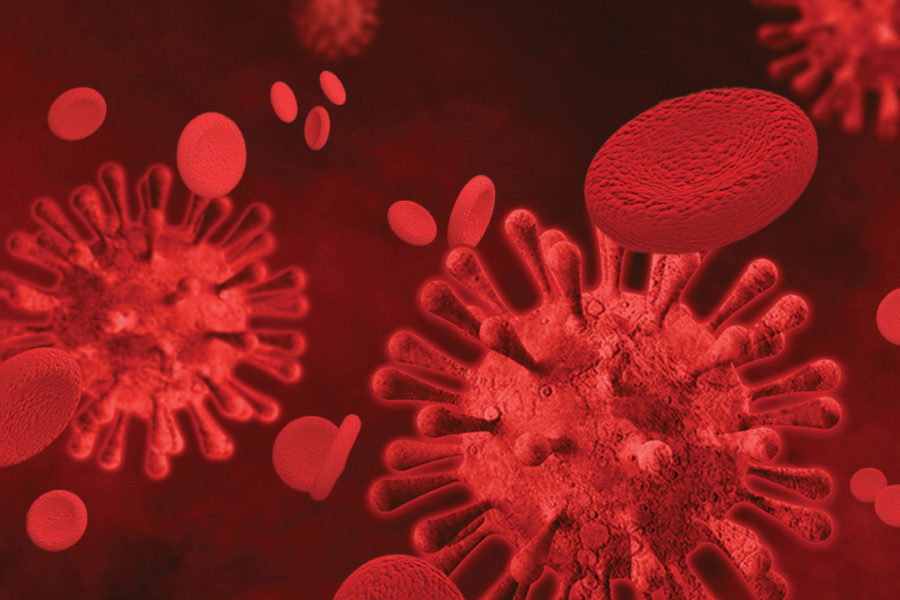COVID-19 and Hypertension: Should You Still Be Taking Your Meds?

In view of the often confusing and conflicting conversations surrounding the use of hypertensive medication during the COVID-19 pandemic, we’d like to address those concerns.
In uncertain, challenging times, we search for voices of reason, authority, and calm. To accomplish that goal, it’s important to weigh and evaluate the chatter from various sources, and especially those most respected and researched. Even then, however, there can be a lack of consensus, and this is typically true when the situation, such as COVID-19 pandemic, involves unknowns.
Acknowledging the unknowns is important, because it helps experts and laypeople alike realize the possible chinks in the foundation. At the same time, we need to embrace the critical cement—the latest and most respected and evolving research—because that’s the basis of our structure or, in this case, the recommendations healthcare professionals can hang their hat on.
Three thoughts on COVID-19 and blood pressure drug use
Currently there are three thoughts about COVID-19 and the use of blood pressure medication. Let’s look at all three briefly.
1. Drug use increases COVID-19 susceptibility
Some research has pointed out that use of renin-angiotensin blockers, which include angiotensin-converting enzyme (ACE) inhibitors and angiotensin II receptor blockers (ARBs) may not only increase a person’s chances of contracting COVID-19 but also raise their risk of dying from the infection.
The authors of new research, which appears in The Lancet Respiratory Medicine, hypothesize that giving ACE2-stimulating drugs to individuals with diabetes and high blood pressure might increase the risk that an individual may develop a severe or fatal case of coronavirus infection. These experts suggest that patients who have hypertension, diabetes, or cardiac diseases take calcium channel blockers rather than ACEs.[1]
This idea has to do with how the COVID-19 virus (SARS-COV-2) enters the human body. As stated in the recent joint statement from the American College of Cardiology, American Heart Association, and Heart Failure Society of America (see “Keep taking your high blood pressure medication” below) “Angiotensin converting enzyme 2 (ACE2) receptors have been shown to be the entry point into human cells for SARS-CoV-2.” But the impact of this entry is not consistent and experts don’t have any conclusive evidence that it affects how people might respond to the virus.
In fact, as noted by Dr. Daniel Batlle, a professor of nephrology and hypertension at the Northwestern University Feinberg School of Medicine, there’s no evidence that “the presence of ACE2 in the lungs where the coronavirus presumably interacts with ACE2 to enter the body” and replicate. Therefore, this suggestion is without evidence.[2]
2. Antihypertensive drugs protect against COVID-19
This hypothesis was put forth by a team whose work appeared in Mayo Clinic Proceedings.[3] The authors suggested that drugs taken to treat high blood pressure, heart failure, and diabetes, including ACE inhibitors and ARBs, might protect individuals with COVID-19.
More specifically, ACE inhibitors block angiotensin II in the lungs and other organs. Angiotensin II promotes inflammation, fibrosis, and vasoconstriction, therefore “it is quite conceivable that a pharmaceutical agent that can inhibit the production of this hormone could actually be very beneficial for preventing lung injury,” according to coauthor Carl J. Lavie, MD, of the John Ochsner Heart and Vascular Institute, University of Queensland School of Medicine. He stressed that it’s premature to give such agents, such as ACE inhibitors, for COVID-19, but that “this is an active area for investigation.” [4]
The study’s lead author, Dr. Sanchis-Gomar, explained that patients with hypertension, heart failure, and diabetes should still be treated with ACEs and ARBs regardless of COVID-19. However, he also pointed out that “ARBs could potentially be a more favorable treatment option in COVID-19 patients at higher risk for developing severe forms of the disease.” [4]
3. Keep taking your high blood pressure medication
For now, it’s not clear whether successfully managing high blood pressure alone is enough to reduce a person’s risk of dying related to coronavirus. However, the American College of Cardiology, American Heart Association, and Heart Failure Society of America issued a joint statement recommending patients continue use of their medications.[5]
We already know that uncontrolled BP can significantly increase cardiovascular risk and death, and that medications such as ACEs and ARBs are effective against hypertension. Therefore, experts broadly agree that stopping blood pressure medication could be disastrous, resulting in rapid rises in blood pressure that could result in heart attacks, strokes, and acute episodes of heart failure.
Another consideration is that the added stress of worrying about the impact of COVID-19 can negatively influence blood pressure as well. Therefore now more than ever, it’s critical that individuals who are taking antihypertension medication continue to do so.
As Dr. Mariell Jessup, chief science and medical officer for the American Heart Association, stated, “You want to keep in the very best health you can possibly be in, and that means whatever medicines you’re on, you continue taking those medicines.”[2]
The bottom line
Patients with high blood pressure, heart failure, and diabetes who are taking blood pressure drugs should continue doing so and never abruptly stop taking their medication. This holds true for the current COVID-19 pandemic. Any time individuals are considering the use of these medications or changing them, it is highly recommended their doctors assess their central (aortic) blood pressure, which differs significantly from conventionally measured brachial blood pressure. Use of this approach, utilizing ATCOR’s SphygmoCor XCEL, provides physicians with the most accurate data currently available so they can best manage their patients with high blood pressure and related conditions.
Sources
- Fang L et al. Are patients with hypertension and diabetes mellitus at increased risk for COVID-19 infection? The Lancet Respiratory Medicine 2020 Apr 1; 8(4)
- Schroeder MO. Managing high blood pressure during the coronavirus pandemic. US News & World Report 2020 Apr 2
- Sanchis-Gomar F et al. Angiotensin-converting enzyme 2 and anti-hypertensives (angiotensin receptor blockers and angiotensin converting enzyme inhibitors) in coronavirus disease 2019 (COVID-19). Mayo Clinic Proceedings 2019
- Mandal A. Antihypertensive drugs may protect against COVID-19 in heart patients. News Medical Net 2020 Mar 31[5] American College of Cardiology. HFSA/ACC/AHA statement addresses concerns re: using RAAS antagonists in COVID-19. 2020 Mar 17
- American College of Cardiology. HFSA/ACC/AHA statement addresses concerns re: using RAAS antagonists in COVID-19. 2020 Mar 17
Related posts
Sign up for our VITALITY newsletter
[ctct form="491" show_title="false"]You can unsubscribe at any time
Subscribe

